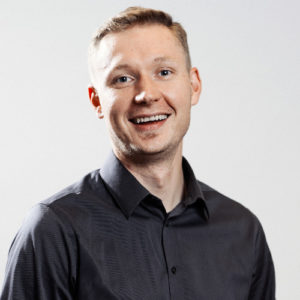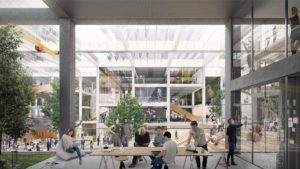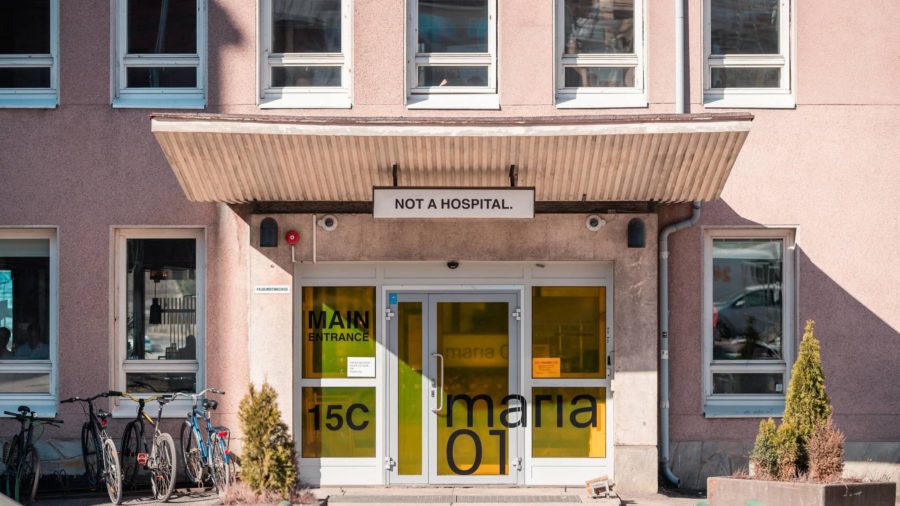Maria 01 is a Finnish non-profit combination of an entrepreneurial community, a selective campus for tech teams and a technology builders club. Owned in part by the same owners as the Nordic’s biggest startup conference, Slush (25.000 attendees every year), Maria 01 has begun the expansion of its Helsinki campus to become Europe’s largest startup campus. In the upcoming years, the campus will expand from its current 10.000 sq metre space to 70.000 sq metre by 2023. The campus expects to attract approximately 650 new operators and new jobs for at least 4.000 people. We have interviewed Ville Simola, Maria 01 CEO, to find out the ideas, thoughts and numbers behind the expansion.
Hi Ville. Can you briefly introduce yourself as well as the Maria 01 project?

Ville Simola, Chief Executive Officer at Maria 01
I started my professional career working with startups and creating many ecosystem initiatives such as Kiuas accelerator (formerly known as Summer of Startups). Also, one of the most recognized startup accelerators in Europe, Startup Sauna. After that, I was involved in a health-tech startup from where I moved into the corporate world. Now, coming back again to the startup scene as the CEO of Maria 01 feels like returning back home.
As for Maria 01, it is the biggest startup campus in the Nordics with a vision to become the biggest one in Europe. Currently, we host around 130 companies and a total of 1.100 members. We also have 8 VC funds located in our premises and some more as part of our external network. We are a not-for-profit combination of a selective tech-club, a community house and a tribe of people building products and services for the future.
Maria 01 is the biggest startup campus in the Nordics with a vision to become the biggest one in Europe.
The plan is to create the biggest Startup Campus in Europe by 2023. Why does it make sense to gather physically so many people and businesses?

I think economies of scale make a lot of sense. Especially since Finland is a small country, we must have places that are reaching a size that achieve international recognition. Also, when the community is working well, companies are able to get a lot more value when being surrounded by all the best fellow-companies and investors in the area.
Companies have to apply to become a member. Only 16% are selected. What are the criteria?
Our criteria for new companies are: Product/MVP ready, traction/revenue, first external investment round completed and a strong team.
To what extent do you see yourself as a coworking community, linking tenants with one another, more than just putting people in a similar building?
I see our main value being linking the community & our networks together. The building itself is just walls and without the community, the true value would be limited. Having said that it helps to have a cool building and a central location.
I see our main value being linking the community & our networks together. The building itself is just walls.
Is the business model similar to other coworking spaces?
Our business model is two-folded, where we get rent income from all tenants but also service fees from the services we sell. Our biggest service revenue comes from large corporates where we currently have 8 main partnerships.
Many privately funded coworking operators are sprouting everywhere. In your opinion, why is there a need for such a big ambitious project and for this approach?
I think in every opportunity there is room for business. It’s cool to see some of the players growing big globally but how well do they know the local communities and their needs? One of the biggest values these big players provide for startups is definitely the access to multiple markets though their premises and networks.
The new Maria 01 Campus is the grand child of the Startup Sauna program and of the Slush conference, one of the biggest startup events in Europe. Can you explain what are the synergies between those initiatives?
I think the startup ecosystem in Finland is very unique due to the nature of starting up by the grassroots movement. Like you described, there would not be Maria 01 without the boost of Startup Sauna, Slush and other related activities. There are many synergies between the parties and actually Slush and us have partly the same ownership base through Startup Foundation. A concrete example of a synergy would be having foreign investors visiting Slush every year and most of them are also coming to Maria 01 to meet our companies and joining some of the events we host during the Slush week. In a more general view, our ecosystem is getting double the noise of having several visible players. I think it’s quite critical for the ecosystem to have different players serving the required needs for a vibrant ecosystem.
A concrete example of a synergy would be having foreign investors visiting Slush every year and most of them are also coming to Maria 01 to meet our companies.
The City of Helsinki is involved in the project. Why is it good to have the mayorship aboard?
Helsinki has been one of the parties who have believed in us from day one by renting us their old hospital area. I think it’s very unique to have a city that understands the importance of technology and startups. Also, the Mayor of the city is a very big fan of ours. We have managed to find a good model to cooperate with the city and in our daily operations we don’t see much of the slowness that might occur in some things.
I think it’s very unique to have a city that understands the importance of technology and startups.
Close to 650 startups, that’s a lot… Is the startup economy in the Nordics important enough to fill in the infrastructure?

That is a very good question. Most likely we need more companies coming also outside of Finland and the Nordics. Our company portfolio will also evolve since we are going to have more growth and scale-up startups. Most likely also some large companies with their core in technology and a solid understanding in working with startups.
Finland used to be known as “Nokia-land”, 15 years ago. To what extent the Maria 01 project contributes to a new narrative for the country’s economy?
At its peak, Nokia used to employ about 24.000 employees in Finland alone and paid taxes worth of 1,1 billion euros. I don’t think there will be any other single player who would compensate that completely although there are already companies like Supercell that are making a huge contribution to the economy. With the future Maria 01 campus, we are also doing a fair share of creating new jobs and having approximately 4500 people working in the area. Also, the contribution of these 600+ companies will make a significant input in the economy.
Join Coworking Europe Conference for more insights, data and connections!


